Animals
-
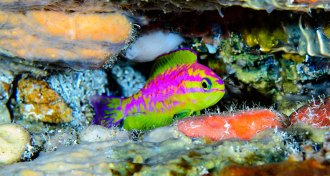 Animals
AnimalsThis new fish species displays a splash of highlighter hues
Researchers stumbled upon a new species of coral reef fish with spectacular coloration and a unique habitat.
-
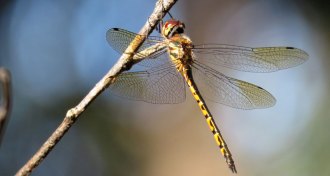 Animals
AnimalsHow math helps explain the delicate patterns of dragonfly wings
Scientists have found a mathematical explanation for the complex patterns on the wings of dragonflies and other insects.
-
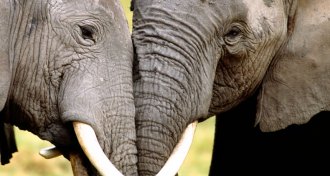 Life
LifeDNA from seized elephant ivory unmasks 3 big trafficking cartels in Africa
Scientists can sleuth out wildlife crime and aid law enforcement by tracing elephant DNA from ivory seizures back to the source.
-
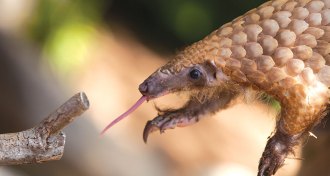 Animals
Animals‘Poached’ offers a deep, disturbing look into the illegal wildlife trade
In ‘Poached,’ a journalist reports from the front lines of the illegal wildlife trade and shows how conservationists are fighting back.
-
 Tech
TechThis flying robot could reveal secrets of the aerial world of insects
A new winged robot with the exceptional agility of a fruit fly could lend insight into animal flight.
-
 Science & Society
Science & SocietyBefore it burned, Brazil’s National Museum gave much to science
When Brazil’s National Museum went up in flames, so did the hard work of the researchers who work there.
-
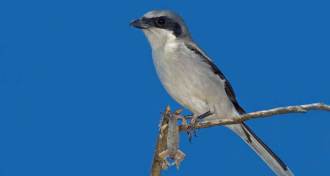 Animals
AnimalsThese songbirds violently fling and then impale their prey
A loggerhead shrike that skewers small animals on barbed wire gives mice whiplash shakeups.
By Susan Milius -
 Animals
AnimalsA gentoo penguin’s dinner knows how to fight back
Cameras attached to gentoo penguins off the Falkland Islands revealed that, despite the birds’ small size, their lobster krill prey can sometimes win in a fight.
-
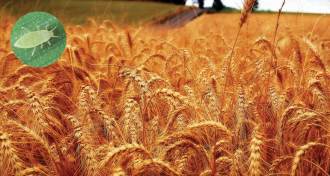 Climate
ClimateAs temperatures rise, so do insects’ appetites for corn, rice and wheat
Hotter, hungrier pests likely to do 10 percent to 25 percent more damage to grains for each warmer degree.
By Susan Milius -
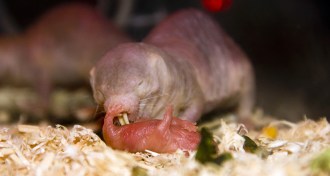 Animals
AnimalsNaked mole-rats eat the poop of their queen for parenting cues
Hormones in the naked mole-rat queen’s poop turn subordinate nest-mates into surrogate parents.
-
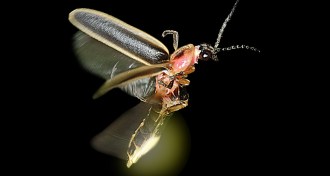 Animals
AnimalsThere’s method in a firefly’s flashes
Fireflies use their flashing lights for mating and maybe even to ward away predators.
-
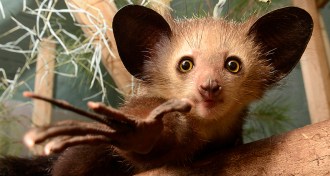 Anthropology
AnthropologyA fossil mistaken for a bat may shake up lemurs’ evolutionary history
On Madagascar, a type of lemur called aye-ayes may have a singular evolutionary history.
By Bruce Bower